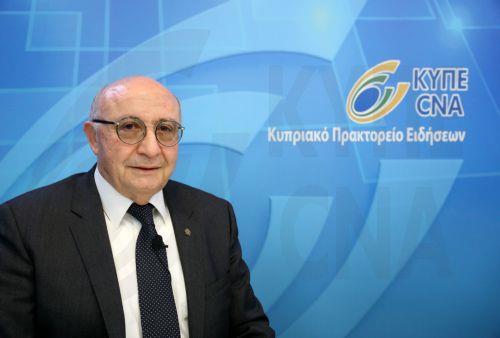The electricity authority (EAC) on Monday cancelled a meeting with the electricity market association (EMA) over what they described as a “violation” of an agreement on the EMA’s part in the publishing of an announcement over the privatisation of Cyprus’ grid.
According to the Cyprus News Agency (CNA), the EAC had said the EMA’s announcement had “violated an agreement reached by the two sides which had referred to ‘a termination of announcements and the holding of a meeting to discuss both sides’ concerns’.”
The EMA had on Friday called for the “immediate opening of a competitive electricity market” and the creation of a regulatory framework in the sector which would “promote competition to ensure a more stable, healthy, and sustainable future for the energy sector in Cyprus”.
“A competitive electricity market is the answer to all the distortions created by the continuation and extension of the transitional regulation of the market as it stands; distortions which favour the EAC at the expense of private entities participating in the market,” they said.
They had added that they “never intended to engage in a public dialogue” with the EAC.
Earlier last week, EMA head Fanos Karantonis had accused the EAC of choking off the competition, while the EAC had said that private renewable energy source-based producers were charging customers 27 cents per kilowatt-hour, whereas it costs them between just 5 to 7 cents to generate electricity.
“They don’t want the EAC to enter the [renewable energy source market] because they would have to charge less,” EAC chairman Giorgos Petrou said.
Meanwhile, University of Nicosia professor Constantinos Hadjitassou had insisted to the Cyprus Mail that blame lies on both sides of the argument.
“Karantonis claims private producers help drive down electricity prices… OK that’s partly true,” he said, while pointing out that the same private producers could bring down electricity prices a lot more by lowering their commercial rates.
Instead, he said, they sell at just 10 per cent lower than the EAC does, and in doing so they rake in windfall profits.
“And is it true what the EAC says, that private providers sell to private customers and don’t channel their electricity into the grid? Yes, for the most part, it is true.”
Looking at the other side of the argument, he described the EAC as a “cumbersome organisation”, and “not as agile as a private business”.
“And we all know about the high salaries paid to EAC employees, that’s a whole other can of worms. But while not an efficient organisation, they still manage to turn a profit.
“If you give everything to the private sector, they’ll gobble it up. And if you hand everything over to the public sector, they will delay a lot to make investments. You need to strike a balance,” he said.







Click here to change your cookie preferences